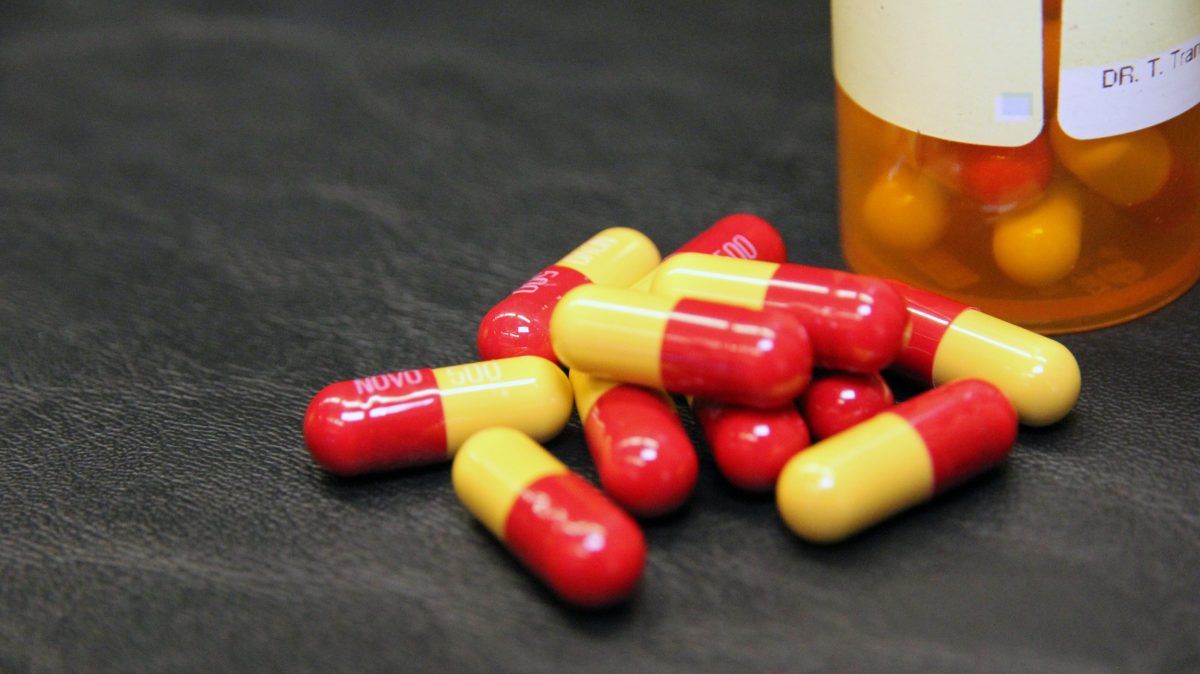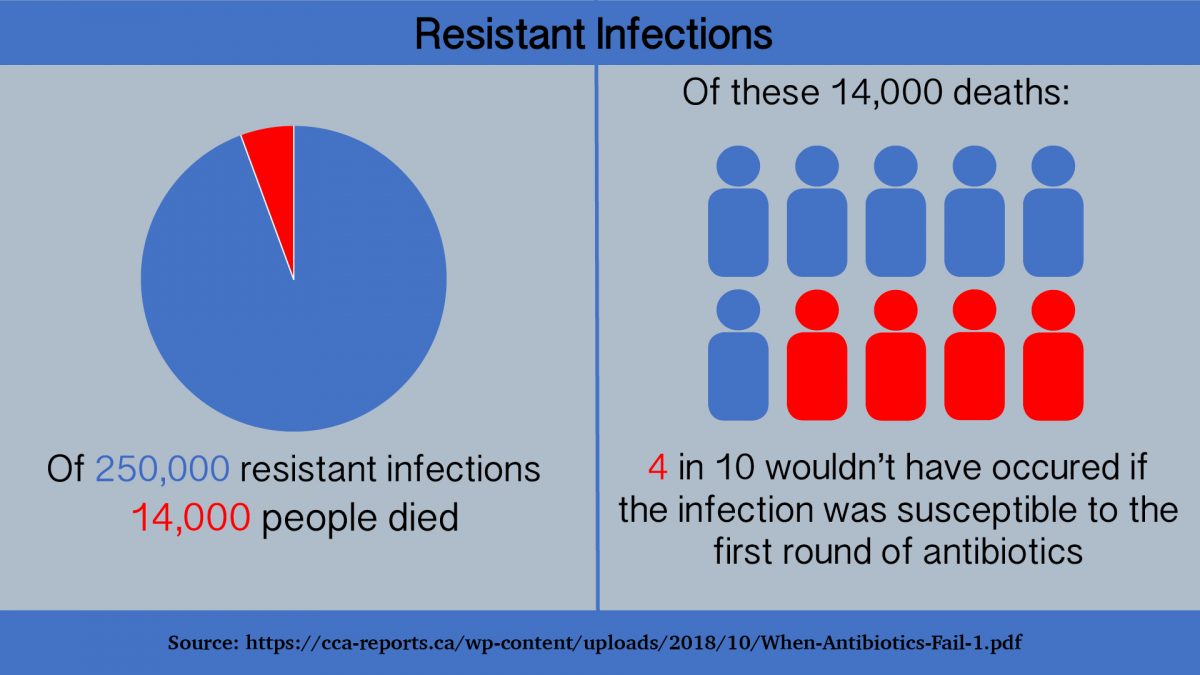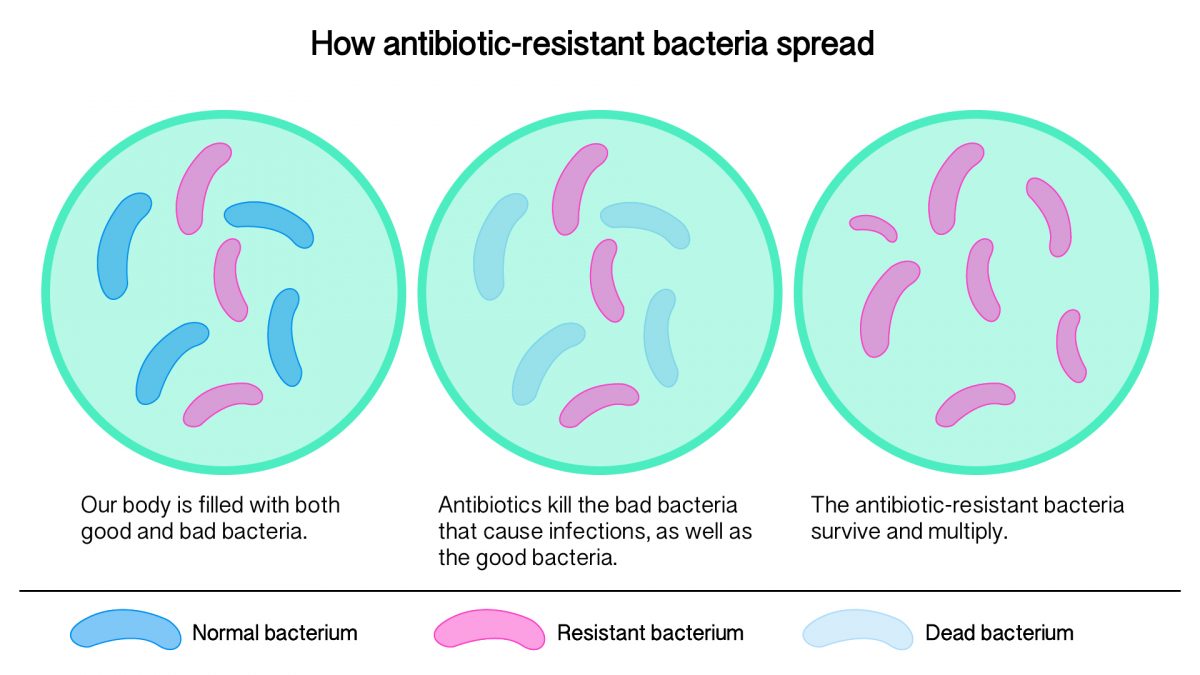Taking antibiotics when they aren’t needed doesn’t just put your health in danger, it puts everyone’s health at risk. It can spread drug-resistant bacteria that can cause life-threatening infections.

Jan Gurnett knows how dangerous antibiotic-resistant infections can be. Gurnett says she almost lost a limb after an antibiotic-resistant staph infection that started in her belly button spread to her leg:
“Had the infection been lower in the leg, the leg would have been removed. It was a heart-wrenching experience.”
Gurnett isn’t alone. A panel of researchers estimates that the lives of thousands of Canadians would have been saved last year if their infections could have been treated with the first round of antibiotics.

The researchers also warned that the number of deaths caused by these superbugs is expected to rise. They found that the percentage of antibiotic-resistant infections is likely to grow from 26 per cent in 2018 to 40 per cent in 2050, killing nearly 400,000 Canadians over the next 30 years.
Dr. Gerry Wright, director of the Institute for Infectious Disease Research at McMaster University, blames the rise partially on the misuse of the drugs:
“The inappropriate use of antibiotics, for example to treat infections not caused by bacteria (such as viruses that cause colds and flus) . . . creates conditions that promote resistance.”
Antibiotics are drugs that are prescribed to treat a range of bacterial infections, from pink eye to pneumonia. They are also used in certain situations as a precaution to prevent infections, like when someone is bit by an animal. Some antibiotics kill the infection by destroying the structure of bacteria, while others stop bacteria from reproducing or dividing.
However, rare strains of the bacteria sometime survive antibiotics. When these strains multiply and spread, the antibiotics they survived will be ineffective on them.

Wright stresses that the inappropriate use of antibiotics impacts everyone’s health, not just our own:
“Because we easily share our bacteria, especially with people we live and work with, our decisions can impact the health of everyone around us. Because antibiotics are most important to cure disease in the most vulnerable (very young, very old, sick with other diseases) we risk the health of our family and neighbours.”
However, according to Dr. Dao Nguyen, an associate professor at the Research Institute of the McGill University Health Centre, antibiotics are essential to stay healthy in certain situations:
“They are critical to prevent infection around the time of surgery or when a medical device is placed in us (like a peacemaker), [and] to treat infections that arise when our immune system is weakened by chemotherapy and other medicines or diseases.”
Nguyen cautions, though, that they should only be used in these types of circumstances when recommended by a medical professional:
“People should not take antibiotics without seeing a doctor . . . and should avoid antibiotics for commons illnesses typically not caused by bacteria. Antibiotics are extremely useful and important medicines, but they need to be used with care [and] for the right reason.
For more information on antibiotic resistance and how to use antibiotics responsibly, click here.
